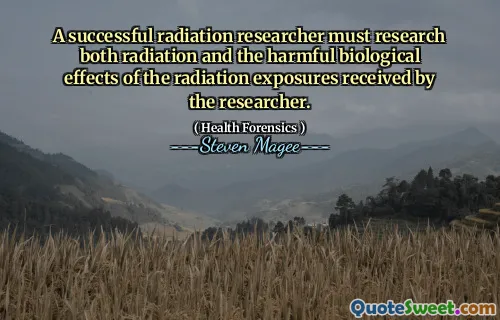I agree with Dr. Makris. Does that mean I would let someone blow up my dead foot to help save the feet of NATO land mine clearers? It does. And would I let someone shoot my dead face with a nonlethal projectile to help prevent accidental fatalities? I suppose I would. What wouldn't I let someone do to my remains? I can think of only one experiment I know of that, were I a cadaver, I wouldn't want anything to do with. This particular experiment wasn't done in the name of science or education or safer cars or better-protected soldiers. It was done in the name of religion.
In Mary Roach's book "Stiff: The Curious Lives of Human Cadavers," she reflects on the ethical implications of experimenting on human remains. She illustrates her willingness to allow various experiments on her deceased body, particularly if they could benefit critical causes, such as aiding NATO land mine clearers or preventing fatalities through safety tests. This openness to scientific exploration showcases a pragmatic view of how our bodies can serve humanity even after death.
However, Roach draws a line at experiments conducted for religious purposes, suggesting that such motivations do not align with her views on honoring the human body. Her commentary invites readers to consider the complex relationship between death, science, and ethics, and highlights the importance of the context in which human cadavers are used in research, calling for a thoughtful engagement with the legacy of our remains.
